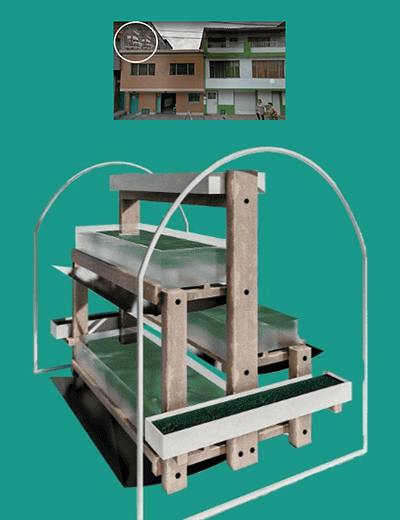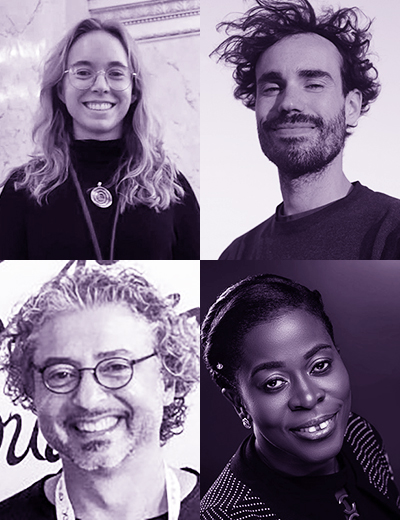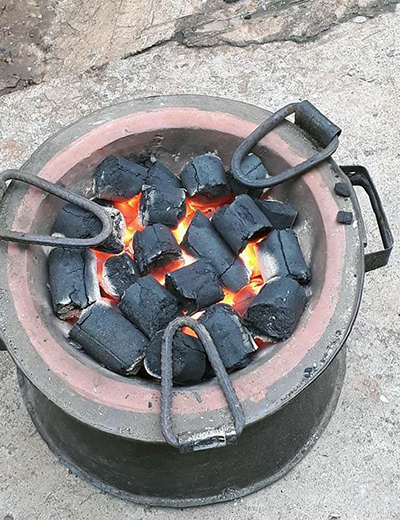Design Your Climate Action is an international design competition, developed and held by BE OPEN and our partners in 2023/2024. It was open to students, graduates and young professionals who specialise in the fields of art, design, architecture and media.
The competition aimed to encourage creation of innovative solutions by younger creatives, for the more prosperous and sustainable future.
Its objective was to raise awareness about SDG#13 and the necessity of urgent action among the young and upcoming professionals of creative disciplines, and contribute to its implementation through identifying, showcasing and promoting creative ideas that support global shift to sustainable and efficient future.
Design thinking has a crucial role to play as an instrument or vehicle for the implementation of the UN SDGs. BE OPEN and all of the stakeholders involved in this international competition programme, strongly believe that creativity is integral in the shift to sustainable existence.
Therefore the students of creative disciplines were encouraged to reflect on “What can be done to combat climate change and its effects on all the levels of our lives: from introducing new national policies to adopting new technologies by industries and switching to greener practices at home?”
On June 22, 2023 the United Nations Secretary-General António Guterres addressed the Summit for a New Global Financial Pact in Paris, France. In the conclusion of his speech, he said the following words meant specifically for the younger generations:
“My generation has clearly failed in many respects – especially on the climate crisis. I count on your generation to keep turning up the heat on global leaders. Hold the powerful accountable. Sound the alarm. Stand up for each other and our planet, and human rights. And build a better future – rooted in solidarity, equality and sustainability.”
In concordance with the tasks and targets set by SDG#13, projects for the competition were to relate to one of the following submission categories:
1. Raising Resilience and Adaptation– technologies to strengthen resilience and adaptive capacity to climate-related hazards and natural disasters.
2. Energy of Change– solutions able to mitigate and reverse climate change caused by burning fossil fuels, promote ways of generating power that emit little to no greenhouse gases or pollutants.
3. Solutions Offered by Nature– projects that involve conserving, restoring, or better managing ecosystems to remove carbon dioxide from the atmosphere.
The First Prize of €5,000 went to Darcy Rincón and Michelle Aljure, the students of Biodesign at Universidad de los Andes, Colombia, for their Inspira System. This project aims to introduce and promote the cultivation of spirulina in low-income neighborhoods in Bogotá. The initiative targets combating malnutrition, creating new income opportunities, and enhancing environmental sustainability within vulnerable communities.
The Second Prize of €3,000 went to Granny Mmantho Lesiamang and the Clauseph BioFuels startup in Botswana, for the Clean Cooking Project. Its focus is on designing, manufacturing and distributing low-cost, energy-efficient biomass stoves that can reduce biomass fuel consumption, lower the smoke inhalation and carbon emissions. The project also includes developing clean solid biomass fuel with wood derived from invasive bush trees, rampant across Botswana’s farmlands.
The Third Prize of €2,000 went to Emilia Ziolek, a Product Design and Technology student from University of Limerick, Ireland, for the Tidal Energy Turbine Form Redesign with Biomimicry concept. It is the first step to a new design of bladeless turbines with hydrofoils. Their streamlined design reduces the impact on marine life by eliminating rotating blades and enhances efficiency in energy conversion. Emilia suggests that hydrofoils operate by harnessing lift generated from water flow, allowing them to capture energy with reduced drag and increased effectiveness.
The Public Vote prize of €2,000 went to Tshepiso Motau, Tsebo Mokwena and Bongeka Buthelezi, students of Industrial Design from University of Johannesburg, South Africa, for the Swiftguard Early Flood Warning System project. is a revolutionary integrated communication system designed to provide early flood warnings. The system includes a telemetry buoy, a signal tower, and a solar-powered alarm system. These components work seamlessly together to monitor water levels and deliver timely alerts to high-risk areas.
The Founder’s Choice prize of €3,000 was awarded to Emilia Ziolek, a Product Design and Technology student from University of Limerick, Ireland, for the Tidal Energy Turbine Form Redesign with Biomimicry concept. Emilia was recently selected the winner of the Third Prize according to the scores by the international jury. It is the first time that one participant receives two prizes in the competition.
Elena Baturina commented on her choice: “We at BE OPEN have always worked to harness the brainpower of younger people, and five years ago we realised that sustainable development is the sphere that needs their creative potential most. Since then, we have been working globally to support the SDGs and contribute to achieving them via recognizing, showcasing and promoting the best ideas and projects developed by the young in the course of competitions.
In the Tidal Turbine project, I praise the extent of multilateral research, dedication to sustainability and creativity. The solution combines efficient production of green energy, which I am personally very dedicated to, and safety for the marine life and ecosystem; it is not disruptive and draws inspiration from nature itself. I believe it is an excellent example of what our competition strives to achieve.”













